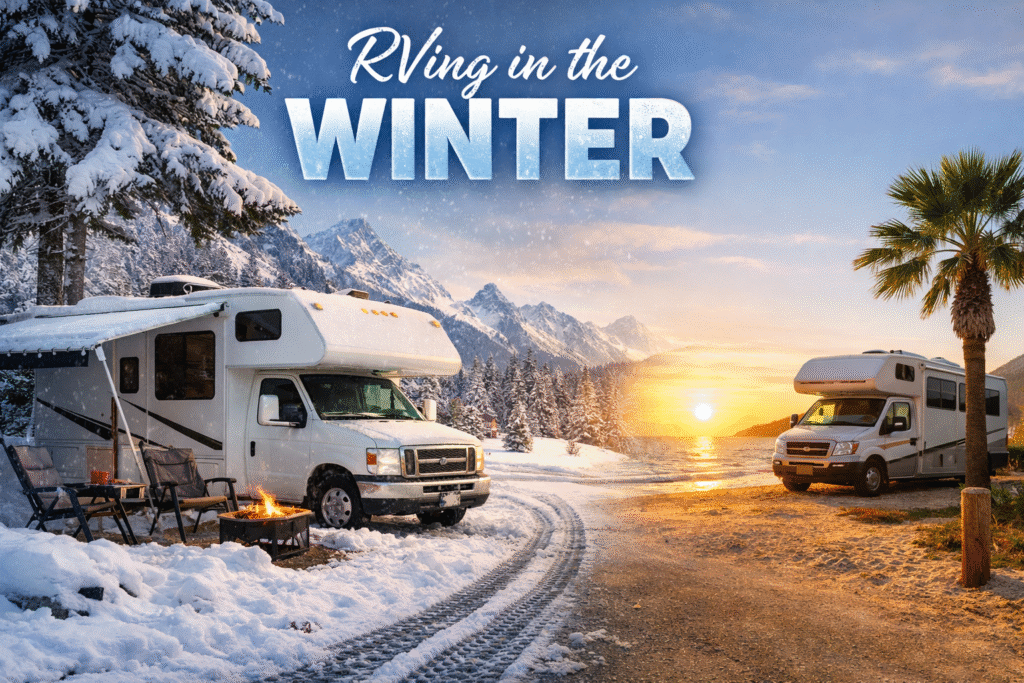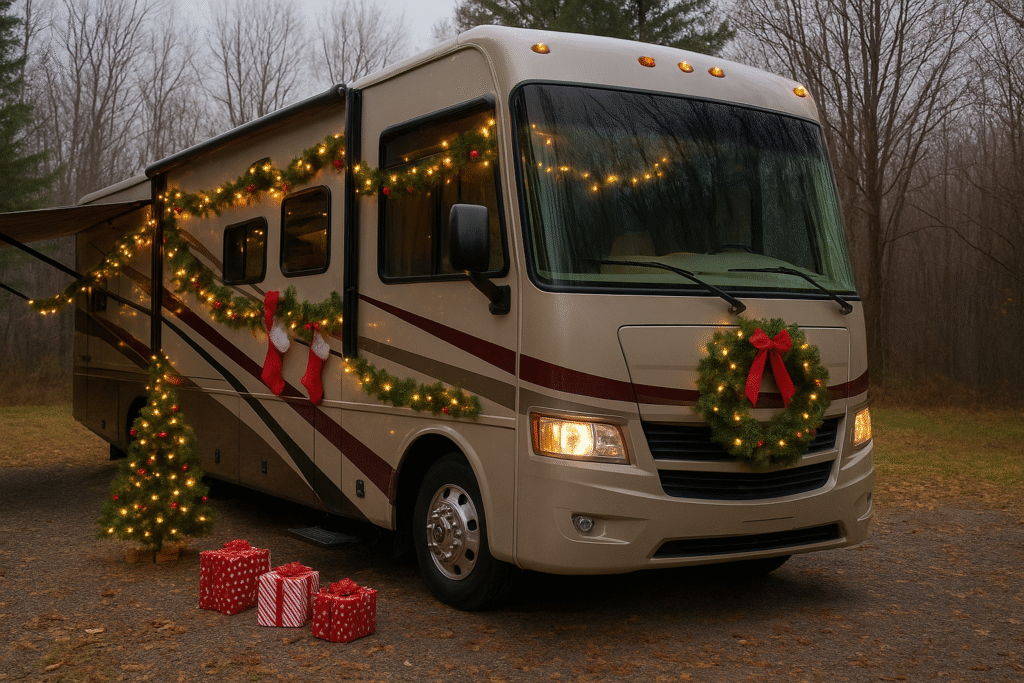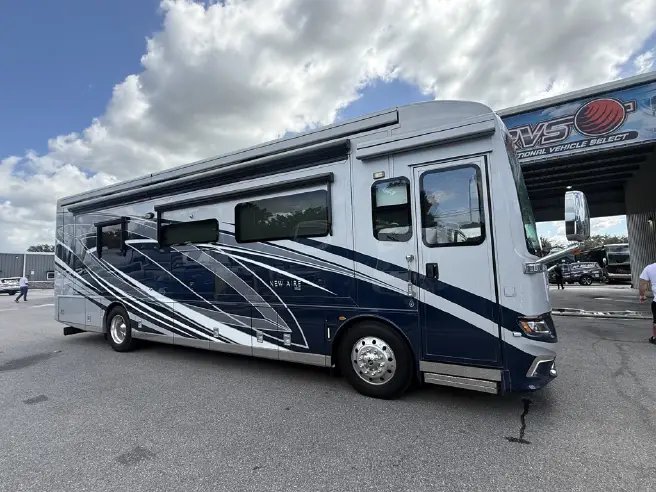Wondering what type of RV is best for you? Just getting into RVing and find all the different options a bit overwhelming? Each style of RV is different, with features and requirements that cater to different types of travelers.
While your selection will ultimately depend on your budget and personal preference, we’ve summarized a few key differences below to help guide you.
Class A
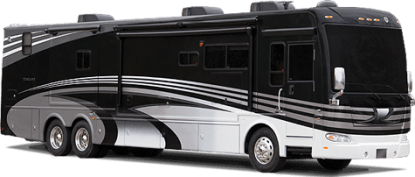
Class A is the motorhome with the most residential features of a home. In other words, if you’re looking to live in your motorhome for an extended period of time, Class A are a great way to take all the comforts of home on the road with you.
Known for their heavy duty frames and build, Class A motorhomes are typically built from a truck or bus chassis and are designed for carrying heavier loads. They offer a roomy living space, separate sleeping areas and plenty of storage space.
Benefits – Luxury, size, variety of floorplans, easy access to the living quarters from the driver and passenger seats, great visibility for the driver due to the height of the driver’s seat
Disadvantages – May be more cumbersome to maneuver due to size/shape, less fuel efficient, expense
Class B
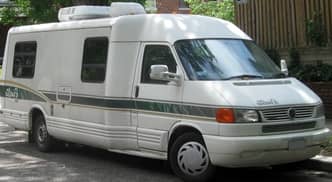
Class B RVs, often known as ‘camper vans,’ are built using manufactured van or panel-truck shells. They typically sleep 2-4 people but drive similar to a van. Class B’s are a more compact RV option and may be good for weekend or shorter road trips. They are easy to park and can usually fit well into tight camping spaces.
Benefits – Compact, easy to maneuver, more fuel efficient than larger RVs, less expensive, ability to pull another vehicle behind
Disadvantages – Fewer amenities, less space, minimal storage
Class C

Class C, or ‘mini motorhomes’ are built on a cutaway van chassis, with a similar type of construction as a pickup truck or van. This structure makes the Class C easy to drive, while also offering all the safety features of a standard road vehicle. Class C can easily be identified by their ‘overhang’ or cab-over – which is typically a sleeping area in most models.
Class C’s fall somewhere between Class A and B on the scale of size and luxury.
Benefits – Easy to drive, more space and storage than a Class B, can be loaded with full amenities rivaling Class A, more fuel efficient than Class A, ability to pull another vehicle behind
Disadvantages – not able to fit in some standard parking spaces, driveways or garages, less fuel efficient than Class B, lacking the full space and luxury of a Class A
Travel Trailer
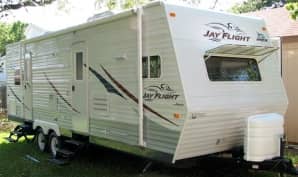
A travel trailer, or ‘pull-behind’ RV is different from a motorhome in the sense that it is towed behind a vehicle. A travel trailer may be ideal for people who wish to have access to a vehicle once parked. With a travel trailer you don’t need to worry about pulling a vehicle behind your motorhome – you can simply unhitch your trailer and have full vehicle access at any time. And because a travel trailer doesn’t require space for an engine, the entire inside can be devoted to living space.
Benefits – easy to unhitch and use vehicle (no need to tow behind), fuel efficient compared to motorhomes, lower maintenance costs, spacious
Disadvantages – no access to restroom or living space while driving, climate control (trailer is shut off from rest of the vehicle while driving), may sway while being towed, may require a certain type of vehicle to tow the travel trailer
Fifth Wheel
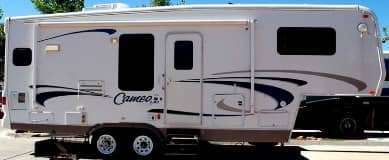
Fifth wheels, similar to travel trailers, are towable behind a vehicle. The difference being that a fifth wheel mounts onto a truck bed instead of being hitched to the rear bumper. Because of this, the fifth wheels offers a split level floorplan with more room for both living and storage. Fifth wheels are also taller, providing additional ceiling height inside.
Benefits – More stable to tow than a travel trailer, more spacious (even though they are shorter in length than travel trailers), easy to hitch/unhitch, easy to maneuver
Disadvantages – Not as fuel efficient as a travel trailer, must be towed by a truck, split level floorplan may not be ideal for handicapped or elderly, more expensive than a travel trailer
These are just a few of the things to consider when trying to decide which RV will suit your needs.
Questions? Contact us at (813) 651-5999 and we can help.

